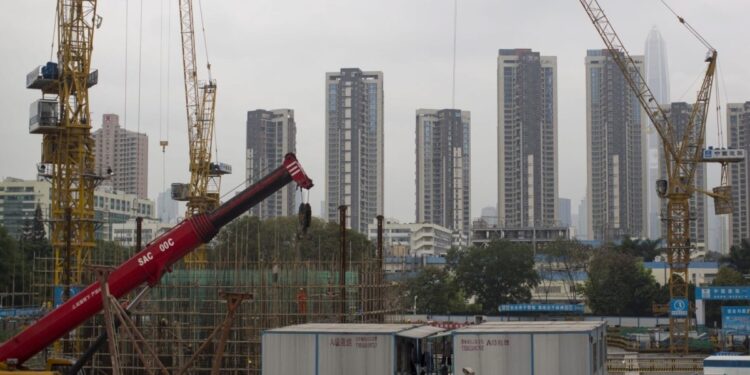China’s manufacturing sector contracted for a fourth straight month this month, official data showed Saturday, a worse-than-expected result that underscores the struggle the world’s second-largest economy is facing to recover.
China is facing a crisis in its huge real estate sector, in addition to declining confidence among households and businesses, which is hindering consumption, at a time when geopolitical tensions with Washington and the European Union are looming over foreign trade.
In August, the purchasing managers’ index, a key gauge of industrial output, stood at 49.1, according to figures from China’s National Bureau of Statistics. Anything above 50 indicates growth, while anything below that indicates contraction.
Analysts polled by Bloomberg had expected a decline in August, but at a more moderate level of 49.5 points.
China’s recovery from the coronavirus pandemic was short-lived and less robust than expected.
While some sectors have largely recovered, including tourism and the automotive industry, others are struggling, particularly real estate, a major driver of growth.
The non-manufacturing PMI, which includes services, was in positive territory in August at 50.3 points compared to 50.2 in the previous month.
Once considered the world’s factory for cheap goods, China is undergoing a transition in its growth model and seeking to become essential to future high-tech industries including artificial intelligence.
In mid-August, China released a set of economic indicators that were considered disappointing despite recent government measures aimed at boosting growth.
Last July, demand for bank loans shrank for the first time in about 20 years, according to official figures, which also indicates a slowdown.
Real Estate Crisis
China’s economy grew at a much slower pace than expected in the second quarter, as a prolonged property downturn and job insecurity dampened an already modest recovery, keeping expectations alive that Beijing will need to unleash more economic stimulus.
Official data showed that the world’s second-largest economy grew 4.7% in the period from April to June, the slowest quarterly growth since the first quarter of 2023, and came below analysts’ expectations of 5.1%, and below the 5.3% achieved in the previous quarter.
The years-long property crisis worsened in June as new home prices fell at the fastest pace in nine years, hurting consumer confidence and limiting the ability of debt-laden local governments to generate new funds through land sales.
The government is targeting economic growth of around 5% by 2024, a target that many analysts believe is ambitious and may require more stimulus.
On the other hand, the economic uncertainty that has been looming over the country has contributed to a vicious cycle that has kept consumption low.



